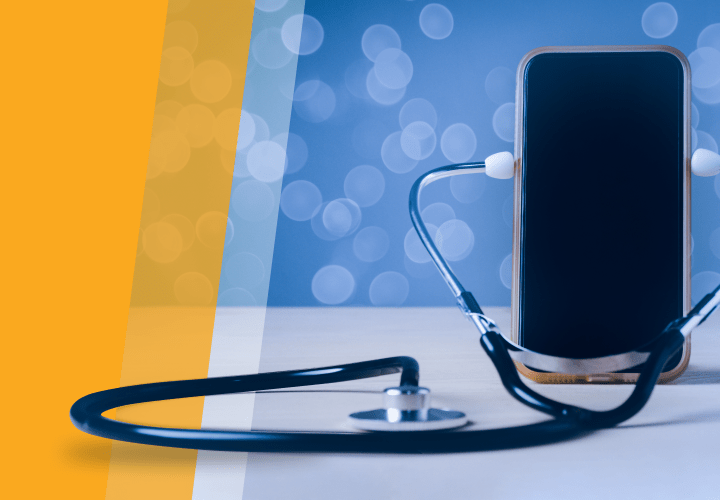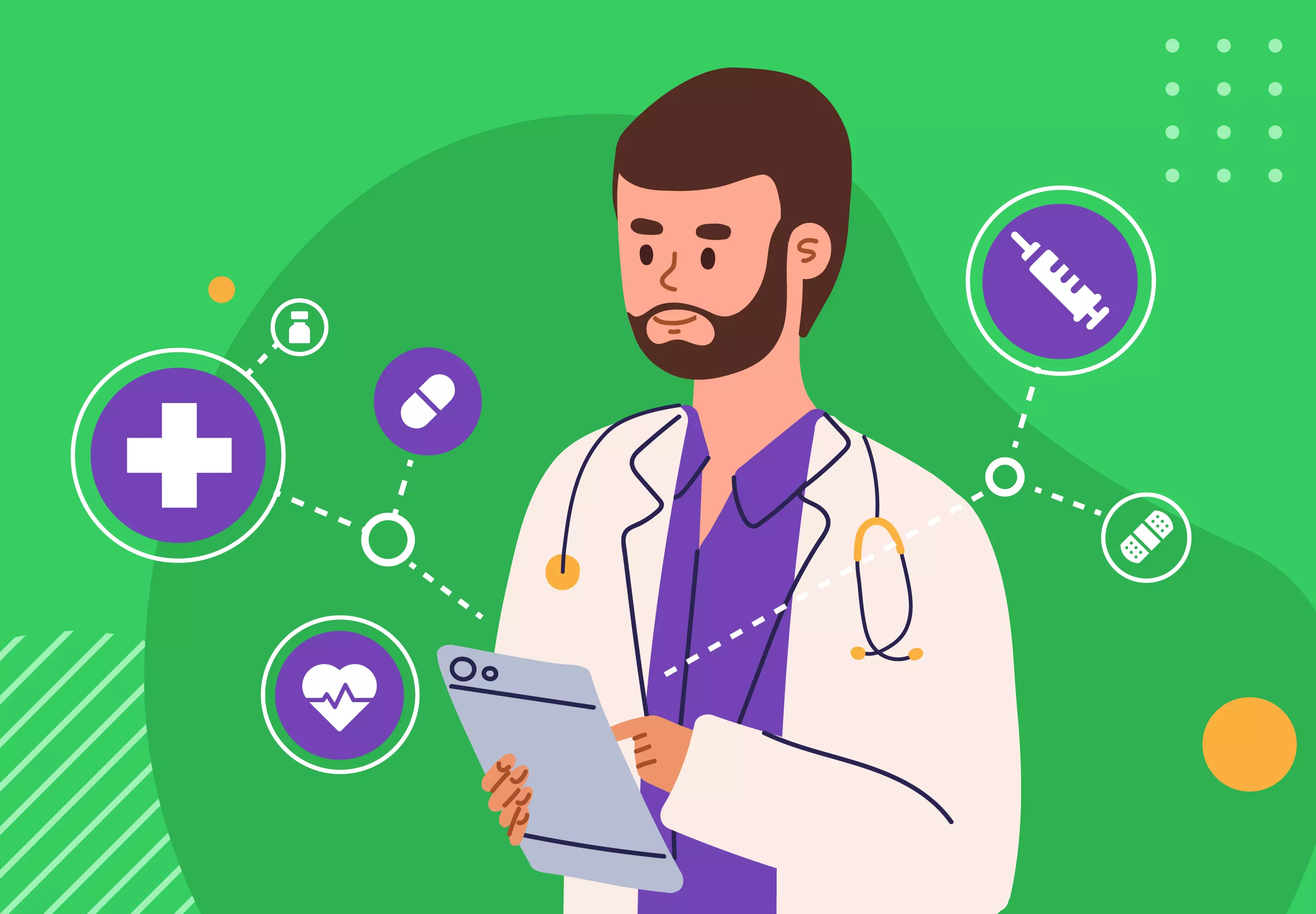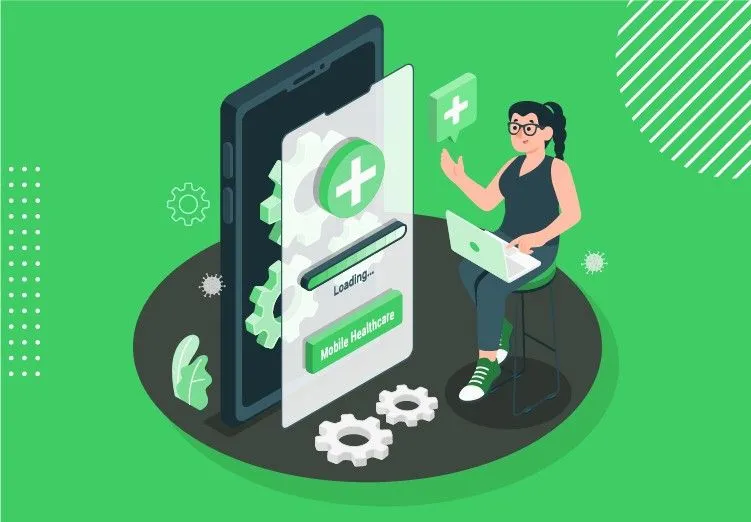EHR Implementation: Key Benefits and Potential Challenges
Table of contents
- What Is EHR?
- Benefits of Electronic Health Records
- EHR benefits for healthcare providers
- Improved productivity of physicians
- Better patient care delivery
- Easier data processing
- More organizational efficiency
- Benefits for Patients
- Easier information exchange
- Streamlined appointment procedures
- Lower risks of losing medical data
- Easy data access for patients
- Most Common EHR Implementation Challenges
- Time and money investment
- Interoperability
- Patient data privacy
- Staff resistance and lack of training
- Data migration
- Strategies to Overcome EHR Implementation Challenges
- Have a plan and follow it
- Find the right partner
- Train and educate the staff
- Set realistic timelines
- On a Final Note
EHR systems implementation can greatly streamline medical services delivery.
For example, it is time-consuming to maintain a patient’s medical history in paper format, as this requires intensive labor from healthcare professionals. Moreover, today’s patients want to gain access to their medical records without going to the hospital and making an appointment with their physicians. So, digital solutions come in handy here.
Let’s find out why EHR systems are important, how healthcare organizations and patients can benefit from them, and what challenges healthcare providers may face when implementing EHRs.
What Is EHR?
An Electronic Health Record (EHR) is the electronic storage of a patient’s medical history, such as individual diagnoses, treatment records, information about allergies, and laboratory and test results.
EHRs allow medical and health organizations to keep health information about patients in digital systems and share it with other organizations faster. The primary objective of EHR systems is to simplify the work of physicians and other medical staff, improving their performance and the overall productivity of healthcare organizations. At the same time, the enhancement of patient care delivery is of equal importance. Thus, EHR systems are aimed at making patients’ treatment better and more efficient.
If you aren’t familiar with EHR and similar healthcare software such as EMR, PHR, and others, read the dedicated article on our blog.
Benefits of Electronic Health Records
The benefits of EHR implementation depend on whom you ask. So, we divided all the benefits based on how Electronic Health Records are useful for healthcare organization workers and their patients.
EHR benefits for healthcare providers
There are many ways that EHRs benefit the work within healthcare organizations. But the most common advantages of Electronic Health Records include the ones connected with:
- Productivity of health workers
- Patient care delivery
- Patient data processing
- Collaboration with partners and other providers
Improved productivity of physicians
One of the major benefits of EHR implementation is the enhanced productivity of physicians, resulting in lower labor costs. For example, reducing the time spent replacing paperwork with voice data entry gives physicians more time for diagnostics.
EHRs also reduces the time spent on different administrative tasks, allowing for the following:
- Faster review of patient data
- Less time spent on sending automatic appointment reminders
- Easier documentation management using templates
Better patient care delivery
One more benefit of EHRs is better patient care delivery (and, consequently, satisfied patients). By saving time completing medical records, physicians can focus more on patients. Additionally, having the patient’s entire medical history in one place, enables faster time to treatment and better medication management. With access to the detailed medical history, doctors can make diagnoses faster and identify health changes earlier, as they have more historical data regarding previous diagnoses, medications, conditions, etc.
All in all, the key benefits of EHR systems for patient care delivery are the following:
- Better focus on patients instead of paperwork
- 24/7 access to treatment history
- Faster diagnosing process
- The possibility of using electronic prescriptions
Easier data processing
When it comes to health data, a key benefit of an EHR system is more efficient data processing operations. By integrating EHRs in hospitals, health workers use fewer paper forms, which reduces the need to print physical copies.
Among other advantages of EHR implementation are:
- Efficient medication management
- Faster report creation
- Better insights into patients’ health conditions
- Inventory control
More organizational efficiency
The use of EHR in healthcare also improves collaboration between partners and other service providers. For example, when patients are sent for treatment to another healthcare organization, physicians have transparent access to the detailed treatment history. This helps to eliminate wrong diagnoses or missed conditions when making a diagnosis. For healthcare organizations, this means reduced risks of malpractice claims due to better documentation.
Another example of how Electronic Health Records benefit the healthcare system is easier billing through coding applications. With EHRs, the billing process is automated and simplified. Plus, the errors that occur while manually calculating payments completely disappear.
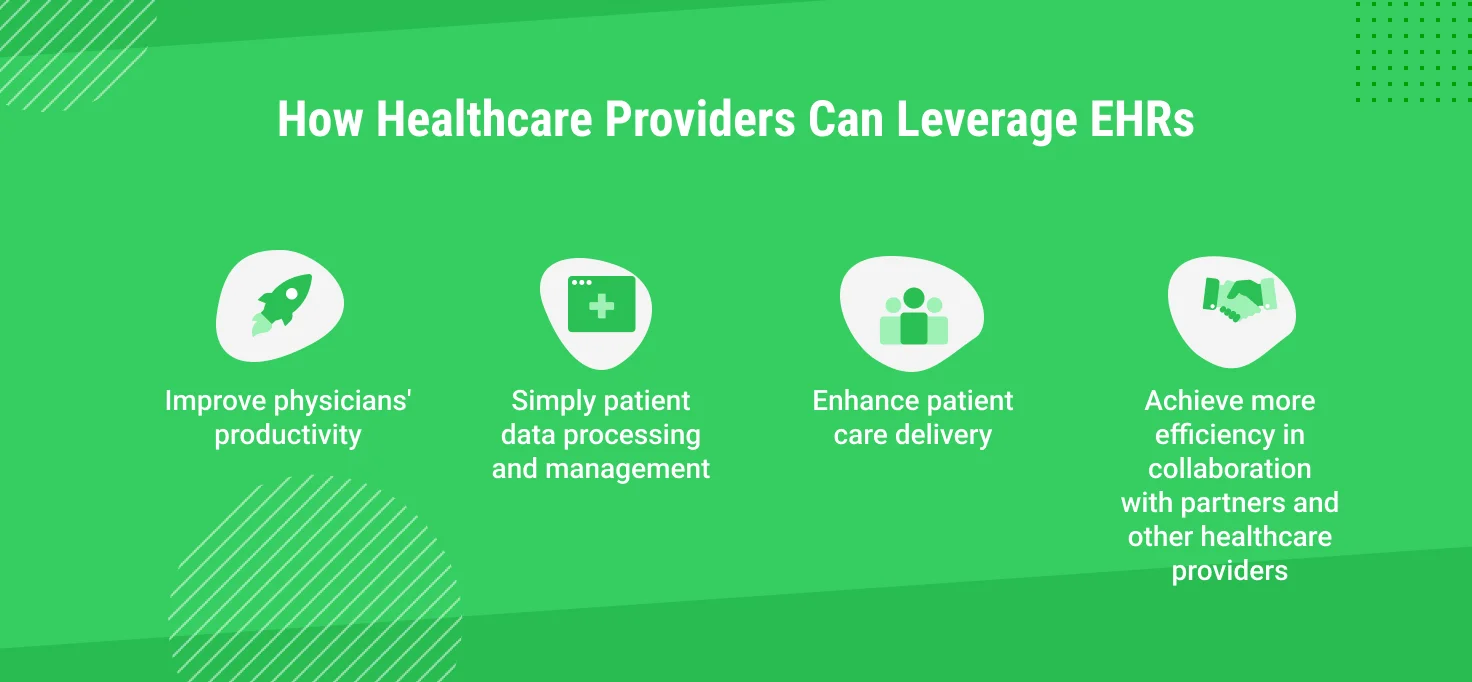
Benefits for Patients
How does an EHR system benefit a patient? Today’s patients want to monitor and control their health data on their own. The use of Electronic Health Records lets them gain access to their data and see which conditions require improvement. Thus, patients can seek medical assistance from a physician faster.
Below are several benefits patients have with EHRs:
Easier information exchange
EHRs let patients receive electronic prescriptions instead of physical ones, so the whole process becomes faster and more efficient.
This is a two-sided benefit. Doctors, in turn, can provide patients with educational materials through the EHR system, which saves patients the time of physically attending hospitals and waiting hours to get what they need.
Streamlined appointment procedures
With EHR systems, patients benefit from making appointments on their own, which simplifies the administrative process and helps eliminate treatment delays. Besides, this makes the whole patient care delivery path quicker, avoiding queues and appointment overlaps.
Lower risks of losing medical data
With EHRs, all medical records are stored in one place in a digital format. So, the risk of losing diagnoses or treatment records for patients with a long medical history stored in paper format decreases greatly, if not disappears at all.
Easy data access for patients
Patients nowadays want to be able to access and keep track of their medical records on their own. With EHR, they can easily be better aware of their health conditions without attending hospitals.
In addition to the abovementioned benefit of EHR implementation, they can also access their medical records 24/7.
The EHR is about quality, safety, and efficiency. It is a great tool for physicians, but cannot ensure these virtues in isolation. Achieving the true benefits of EHR systems requires the transformation of practices, based on quality improvement methodologies, system and team-based care, and evidence-based medicine.
Most Common EHR Implementation Challenges
While EHR systems decrease operational costs and increase productivity, EHR implementation is a long and challenging process. You should be aware of what’s awaiting your health organization, if you take on EHR implementation.
Some of the major challenges healthcare organizations may face are time, money, interoperability, data privacy issues, and human factors.
Let’s take a look at the most common ones.
Time and money investment
This EHR integration challenge is probably the most obvious. To integrate an EHR system into your healthcare organization, you should understand that it takes a lot of time and requires significant investments to build and deploy the system. That’s why it’s critical to choose the right functionality to estimate the budget scope and how long it will take to implement the system.
Interoperability
Interoperability refers to the software’s compatibility with third-party systems, which is a crucial challenge for EHRs. One of the most important features of EHRs is the ability to share patients’ medical records with other healthcare organizations, so accurate interoperability is critical. For example, if an EHR system doesn't support particular file formats used by another organization within their EHR software, it doesn’t make sense to use the technology.
Although technology is improving with regard to interoperability challenges, there is still work to be done. According to the Digital Healthcare Ecosystem report conducted by Business Insider Intelligence, only 37% of US hospital leaders think their organization is "very" or "extremely" successful at sharing medical data with other health systems.
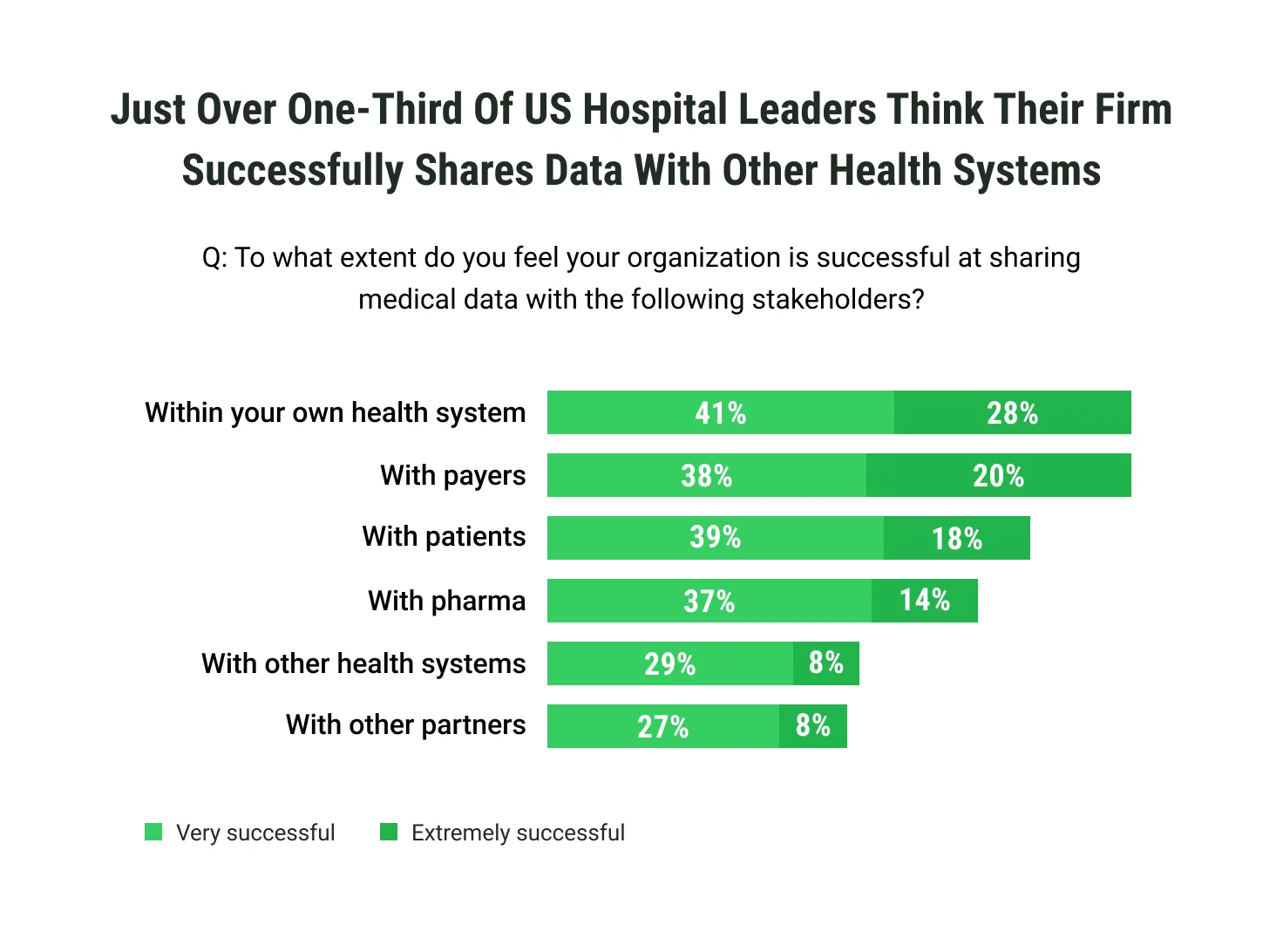
As you can see, there’s definitely room for improvement.
Patient data privacy
Patient data security and privacy protection pose another challenge regarding EHR implementation. Patients and health workers want to ensure complete protection and data integrity, but it’s challenging when the potential of cyber-attacks is on the rise. Patient information is one of the most targeted data areas, so healthcare providers must integrate an advanced data security strategy for their EHR systems. This will eliminate security breaches and protect patient records against hackers. In addition, EHR systems must be compliant with The Health Insurance Portability and Accountability Act (HIPAA), to ensure sensitive patient data security and integrity.
Staff resistance and lack of training
There’s another challenge to consider when planning time frames for project development and implementation. You will need time for staff training to teach employees how to use the EHR’s functionality.
The key obstacle here is that health workers often tend to be resistant to using the EHR system. This may happen because people are just comfortable with paperwork and don’t trust digitalization. Another common challenge is that people are afraid of automatization and tech transformation, as they fear they will lose their jobs and will be replaced by technology.
Data migration
The data migration challenge in terms of EHR adoption is a true “boogieman” for healthcare staff. Creating order out of chaos by exporting paper data to a digital system requires time and human effort. The challenge becomes even more complicated when the previous way of storing documents and data wasn’t systematized properly.
You can save your staff the trouble of transferring health data on their own by finding a data migration service provider that will professionally execute data migration and provide support once the transfer is complete.
Strategies to Overcome EHR Implementation Challenges
The above-mentioned challenges can be easily overcome with the help of some EHR implementation strategies taken by health organizations all over the world.
Have a plan and follow it
If you properly plan the EHR implementation strategy and stick to it, you can easily avoid turmoil and ensure a seamless digital transformation.
Find the right partner
Finding a trusted healthcare development company will help you avoid most of the challenges connected to the lack of staff training and legacy system incompliance.
Train and educate the staff
EHR implementation requires a lot of training for personnel, so make sure you devote enough time to education and training. Stimulate engagement and praise initiatives – this will speed up the adoption of the new technology.
Set realistic timelines
Don’t demand the impossible from yourself and your team. EHR implementation is a time-consuming and complicated process, so keep planning and staff education your priority strategy.
On a Final Note
EHR systems are designed to improve the work of medical services. Current statistics report that 56% of doctors don’t consider EHR to be a helpful solution. However, they do believe in the beneficial potential of EHR if specific improvements are made to the systems. Thus, it’s crucial to understand why your organization requires an EHR system and what functionality will really contribute to the performance of your organization.
If you have an idea for an EHR software project but are not sure how to design it to get the most out of it, contact Emerline’s team. We’ll help you address all the challenges and leverage the potential benefits of EHR.
Updated on Nov 1, 2024
